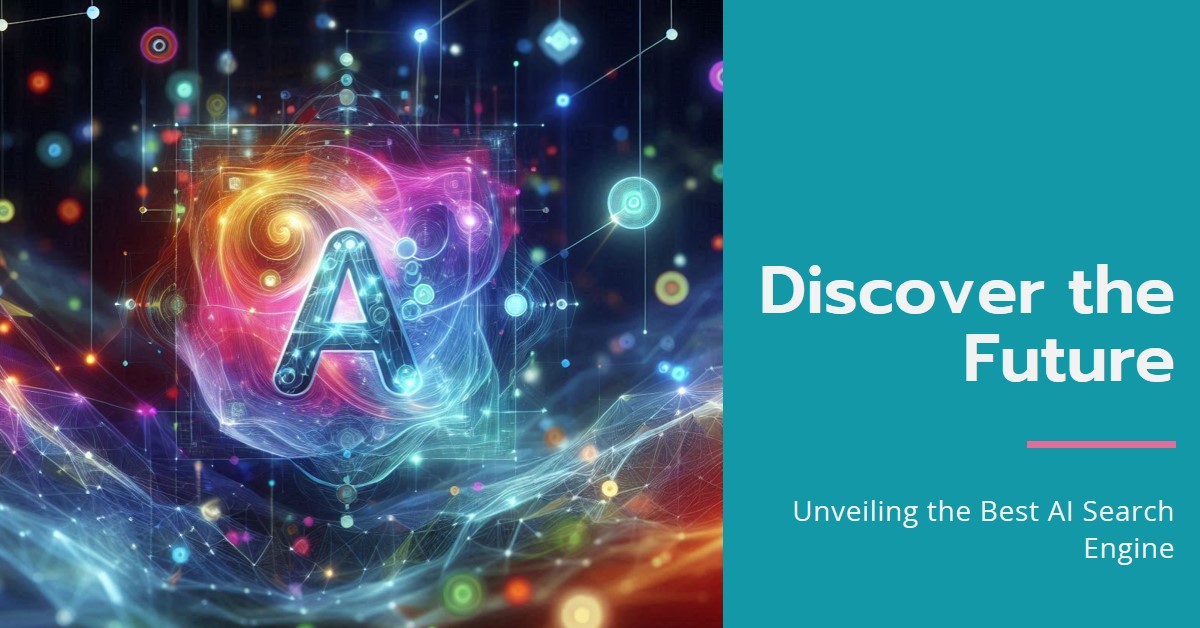The best search engine for AI in 2025, would serve as a crucial portal for both accessing information, connecting with people, and decision-making. The progressive development of artificial intelligence, machine learning, and natural language processing makes an era in which the efficiency of search engines is going to undergo dramatic change. Exploring what makes an AI search engine best, this article delves into various aspects, including technological advancement, user experience, and much more.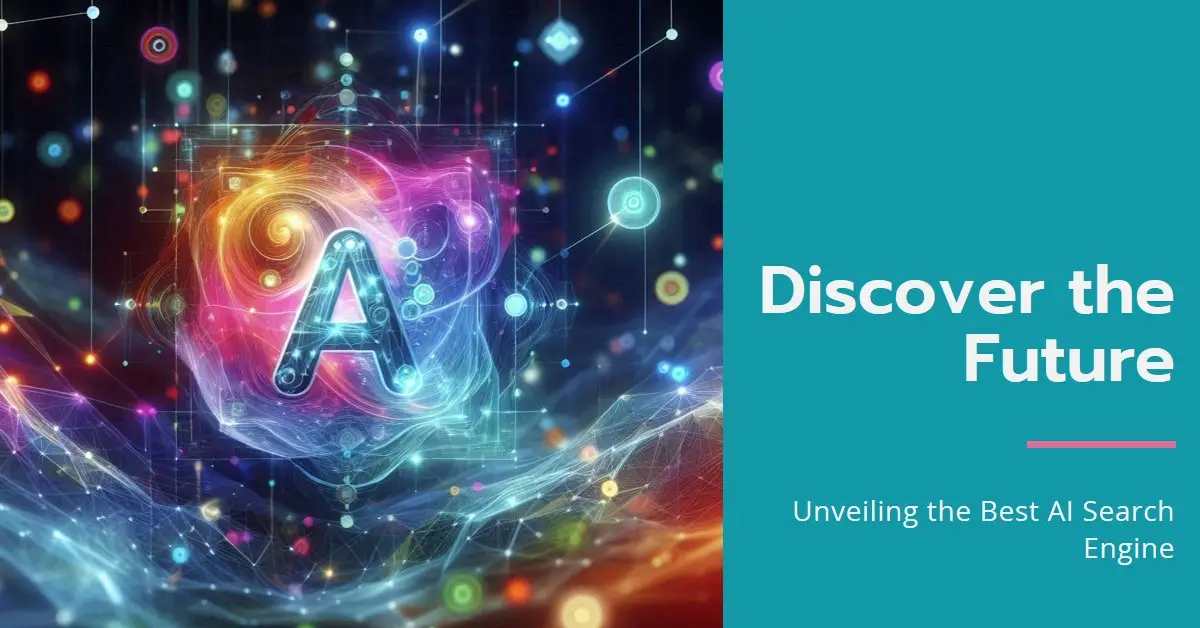
Understanding AI Search Engines
We will now discuss the best AI search engine in 2025 and explain, in particular, how it differs from any traditional search engines. A traditional search engine works essentially as a database; it indexes web pages for returning links based on keyword relevance to users. AI search engines, on the other hand, take it a step ahead with algorithms that read beyond mere indexing; they analyze context, intent, and even emotional nuances to deliver highly personalized search results.
Most Populer and Best Search Engine in 2025:
| Rank | Search Engine | Best Feature | Free Use |
|---|---|---|---|
| 1 | Google SGE | Advanced AI responses | Yes |
| 2 | Microsoft Bing | Integrated chat capabilities | Yes |
| 3 | Perplexity AI | Conversational searches | Yes |
| 4 | You.com | Customizable search results | Yes |
| 5 | Komo AI | Focus on privacy | Yes |
| 6 | Yep Search | User-friendly interface | Yes |
| 7 | Waldo Search | Visual search features | Yes |
| 8 | Phind Search | Developer-focused search | Yes |
| 9 | ANDI SEARCH | AI-generated summaries | Yes |
| 10 | Algolia AI Search | Fast and relevant queries | Yes |
1.Google SGE
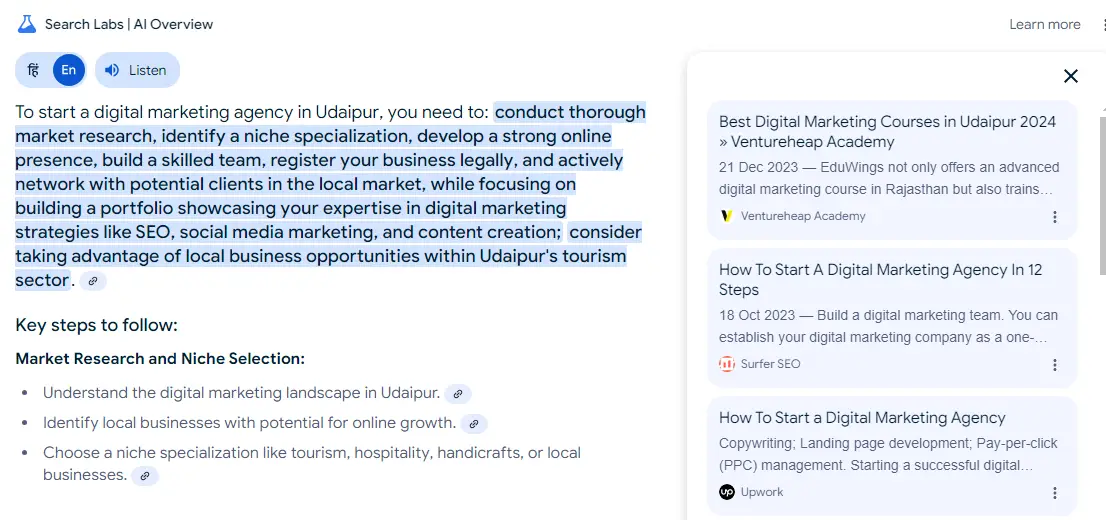
Google SGE (Search Generative Experience) is an AI-driven search feature that enhances traditional search results with generative content, providing more context and relevant responses.
Pros:
- Enhanced Results: Offers richer, more detailed answers.
- User Engagement: Encourages interaction through conversational interfaces.
- Efficiency: Helps users find information faster.
Cons:
- Accuracy Issues: Generation may produce incorrect or misleading information.
- Over-reliance on AI: Users might depend too much on generated content, reducing critical thinking.
- Privacy Concerns: Increased data use could raise privacy issues.
2.Microsoft Bing
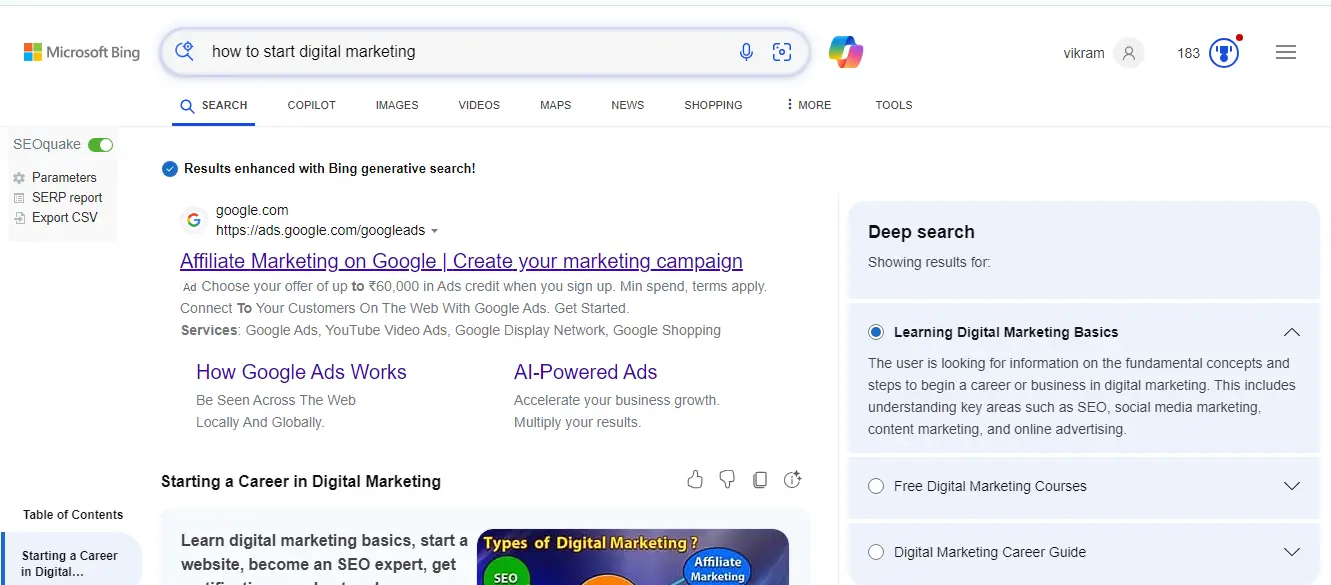
Microsoft Bing is a web search engine developed by Microsoft, offering features like image and video search, maps, and news aggregation.
Pros:
- User-friendly interface
- Attractive rewards program
- Strong integration with Microsoft products
Cons:
- Smaller index compared to Google
- Less popular, leading to fewer resources for optimization
- Inconsistent search results in some categories
3.Perplexity Ai
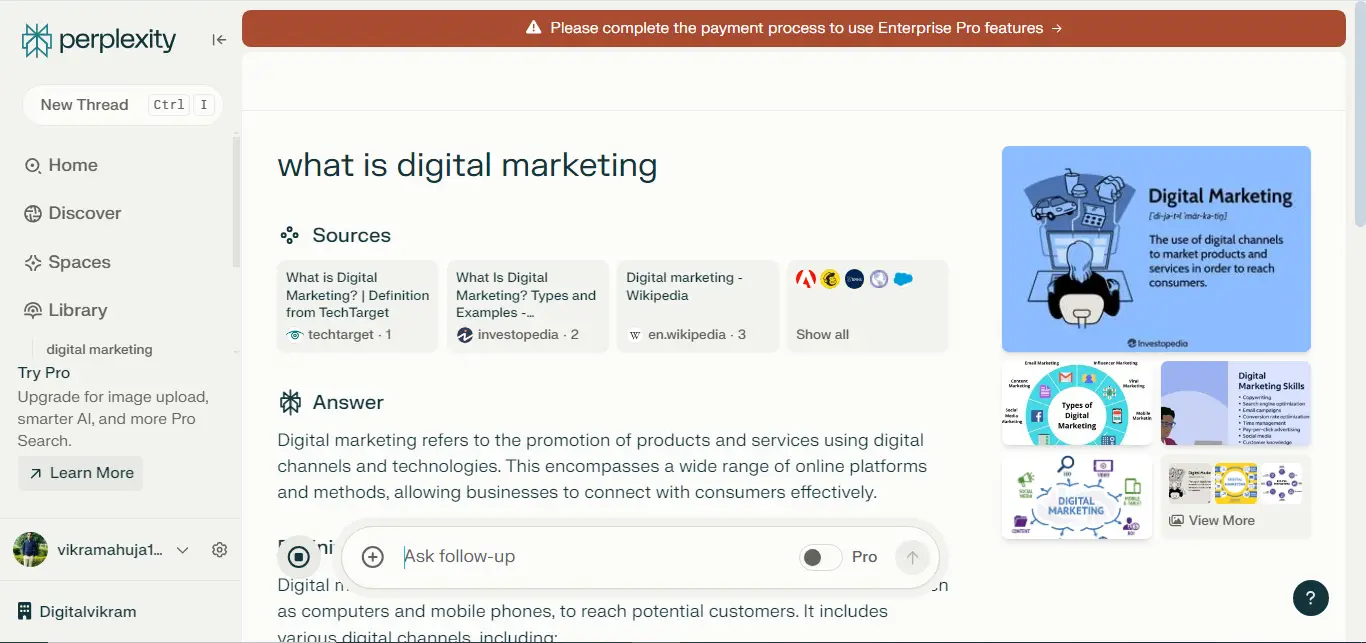 Perplexity.ai is an AI-powered tool that provides answers to questions and generates content based on user queries.
Perplexity.ai is an AI-powered tool that provides answers to questions and generates content based on user queries.
Pros:
- Provides quick, accurate responses.
- User-friendly interface.
- Can generate diverse content types.
Cons:
- Limited to knowledge up to October 2023.
- May struggle with complex queries.
- Responses can occasionally lack depth.
4. You.com
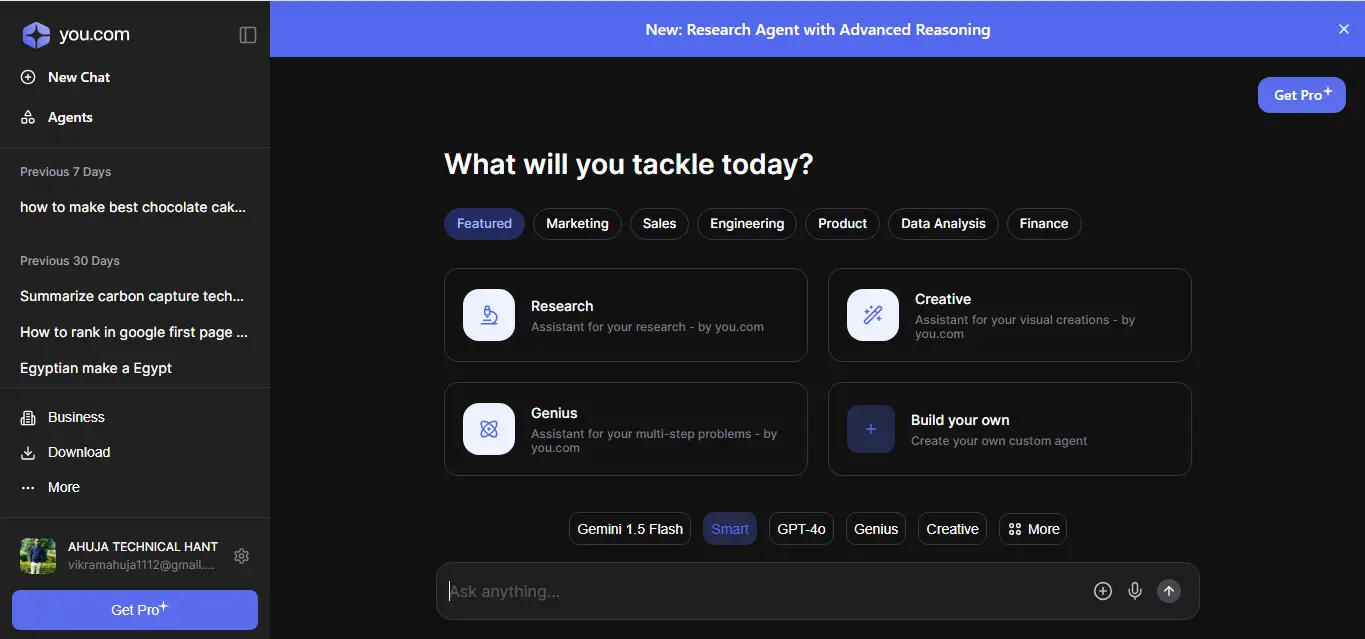 You.com is a search engine that emphasizes user privacy and personalized results.
You.com is a search engine that emphasizes user privacy and personalized results.
Pros:
- Focuses on privacy by not tracking user data.
- Provides customizable search options, allowing users to prioritize different sources.
- Integrates various tools and applications within the search interface.
Cons:
- May have less comprehensive search results compared to larger engines like Google.
- Its user base is smaller, which can affect the relevancy of some results.
- Some features may require adaptation for new users.
5. Komo Ai
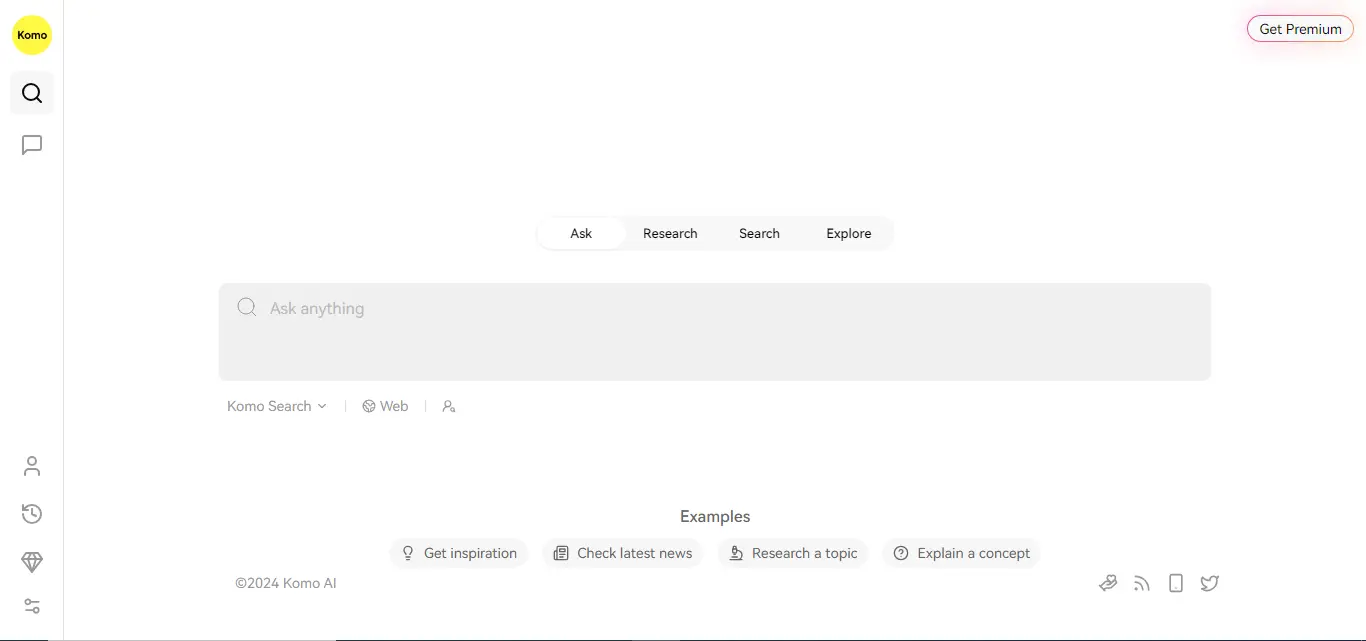 Komo.ai is an AI-based platform that helps businesses improve their operations through automation and data analytics.
Komo.ai is an AI-based platform that helps businesses improve their operations through automation and data analytics.
Pros:
- Enhanced efficiency with automated workflows.
- Data-driven insights for better decision-making.
- Customizable solutions tailored to business needs.
Cons:
- Potential learning curve for users unfamiliar with AI tools.
- Dependence on technology may pose risks if systems fail.
- Ongoing costs associated with implementation and maintenance.
6. Yep Search
 Yep.com is a platform that connects users for various services, allowing individuals to find and book local professionals easily.
Yep.com is a platform that connects users for various services, allowing individuals to find and book local professionals easily.
Pros:
- Convenient access to a variety of local services.
- User-friendly interface for browsing and booking.
- Allows user reviews for informed decision-making.
Cons:
- Limited availability in certain regions.
- Quality of service may vary among providers.
- Potential fees or commissions for users.
7. Waldo Search
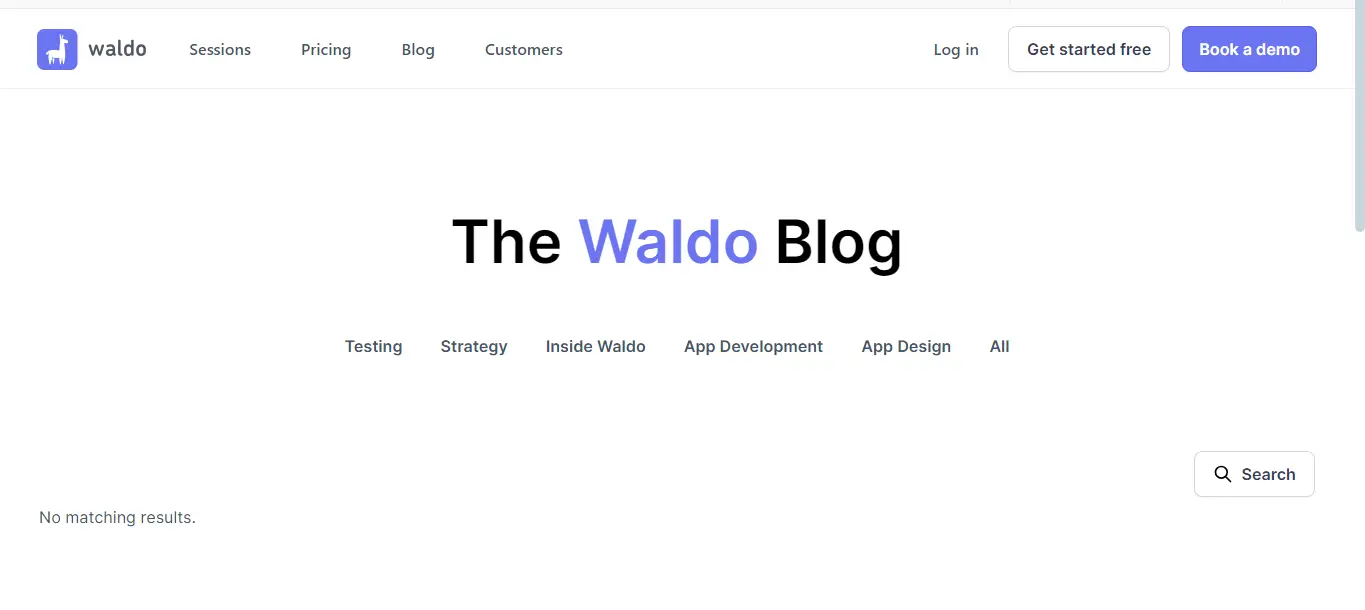
Waldo is a web-based platform that allows users to search for and discover their ideal products using visual navigation.
Pros:
- User-friendly interface
- Visual search capabilities make finding products easier
- Diverse product range
Cons:
- Limited filtering options
- May not cover all brands or products available in the market
- Requires internet access for use
8. Phind Search
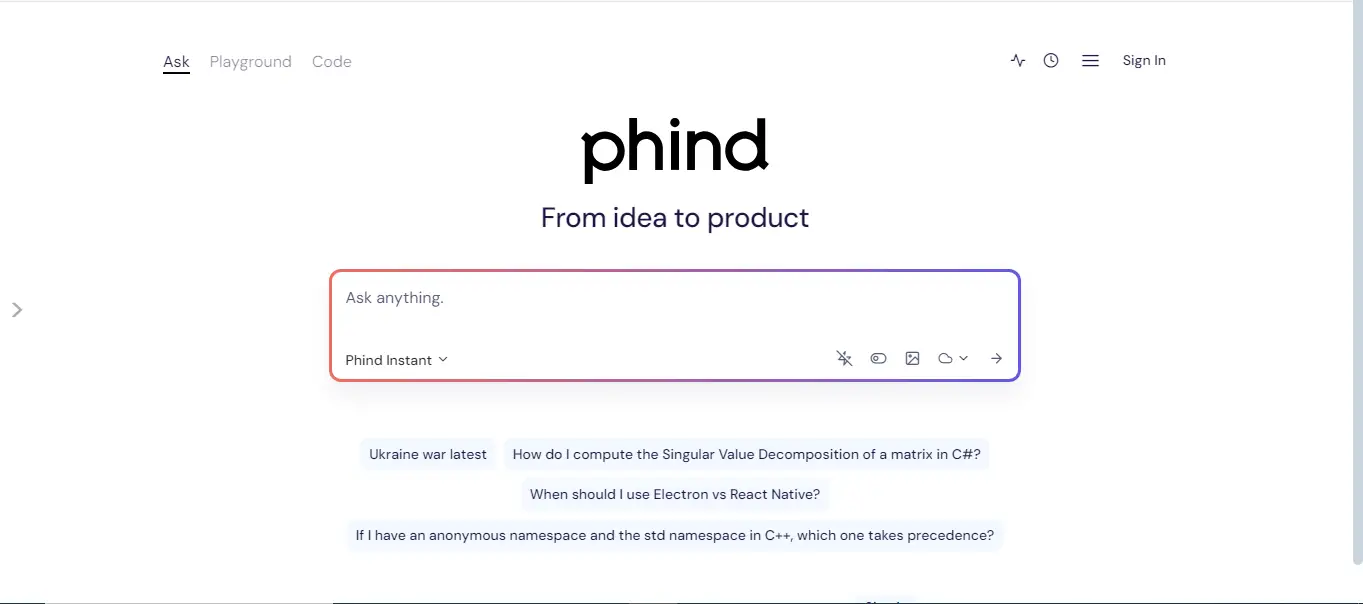 Phind.com is a search engine designed specifically for developers, allowing them to easily find code solutions and relevant technical documentation.
Phind.com is a search engine designed specifically for developers, allowing them to easily find code solutions and relevant technical documentation.
Pros:
- Tailored for developers’ needs
- Simplifies finding code snippets and examples
- Offers relevant documentation quickly
Cons:
- Limited to programming-related queries
- May not have as extensive coverage as traditional search engines
- Might lack broader content on non-technical topics
9. Andi Search
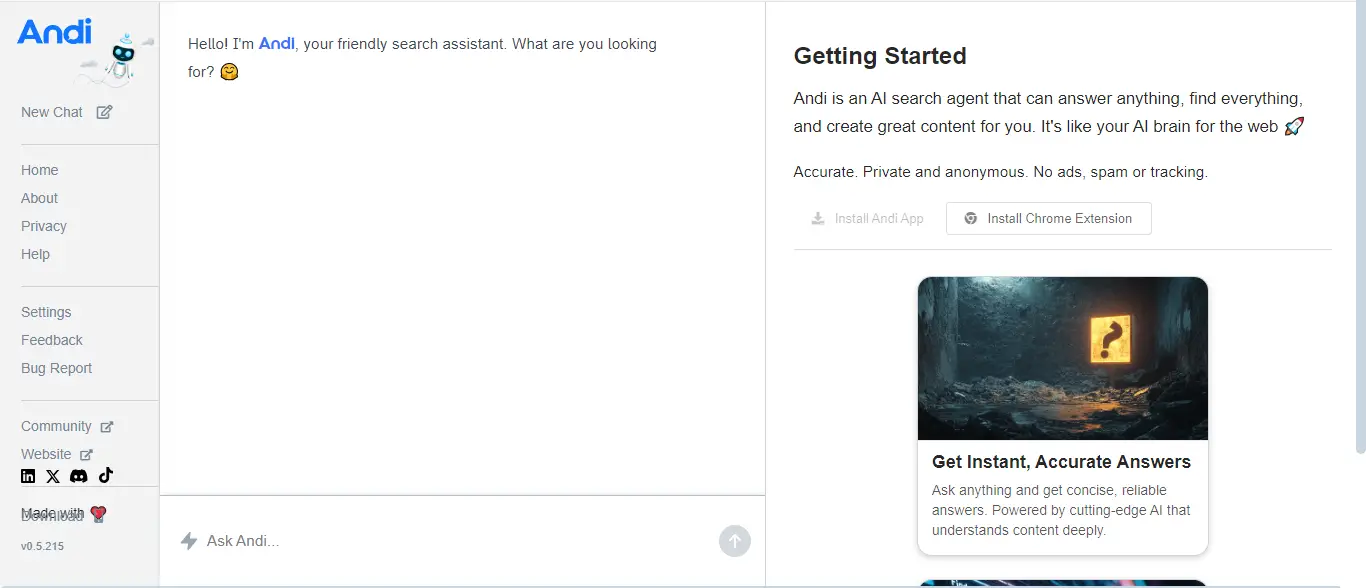 Andisearch.com is a search engine designed specifically for finding information across various websites, services, and content types. It offers users an alternative to traditional search engines by providing a more tailored experience.
Andisearch.com is a search engine designed specifically for finding information across various websites, services, and content types. It offers users an alternative to traditional search engines by providing a more tailored experience.
Pros:
- Specialized Search: Focused on retrieving specific types of information.
- User-Friendly Interface: Simple design that enhances usability.
- Comprehensive Results: Aggregates results from multiple sources.
Cons:
- Limited Brand Recognition: May not be as well-known as larger search engines.
- Fewer Features: Lacks some advanced capabilities offered by competitors.
- Variable Result Quality: The relevance of search results can vary.
10. Algolia AI Search
 Algolia is a powerful search-as-a-service platform that provides lightning-fast, full-text search capabilities for websites and applications. It allows developers to implement advanced search features with minimal setup, enhancing user experience.
Algolia is a powerful search-as-a-service platform that provides lightning-fast, full-text search capabilities for websites and applications. It allows developers to implement advanced search features with minimal setup, enhancing user experience.
Pros:
- Speed: Fast search results make for a better user experience.
- Easy Integration: Simple API allows for quick integration into existing platforms.
- Customizable: Offers numerous customization options for relevance and display.
- Analytics: Provides insights into search behavior to optimize performance.
Cons:
- Cost: Can be expensive for large-scale implementations.
- Dependency on Internet: Requires a reliable internet connection for optimal performance.
- Learning Curve: May take time to fully utilize advanced features.
FAQs
What is an AI search engine?
An AI search engine is a search platform that utilizes artificial intelligence to enhance its ability to understand user queries and deliver relevant results. It employs natural language processing, machine learning, and contextual understanding to personalize search experiences.
How does personalization affect search results in AI engines?
Personalization allows AI search engines to tailor results based on individual user behavior, preferences, and past interactions. This leads to higher relevance in the results presented, ultimately resulting in a more satisfying search experience.
Will voice search remain popular in 2025?
Yes, voice search is expected to continue growing in popularity as technology advances, particularly with the increasing use of smart devices and virtual assistants. Users are gravitating towards more natural, conversational interactions with search engines.
How do AI search engines ensure user privacy?
Advanced AI search engines are expected to prioritize user privacy by implementing transparent data collection practices, customizable privacy settings, and measures to protect user information from unauthorized access.
What role will augmented reality play in future search engines?
Augmented reality will likely play a significant role in future search engines by integrating real-time data with physical environments. This will enable users to have interactive search experiences, blending digital information with their surroundings.
Conclusion
The best AI search engine in 2025 will be designed keeping in mind rich potentiality for the future. We expect AI, natural language processing, and ethical considerations to change the landscape of how we interact with information. We see a future wherein not only will the search engine know how to answer, it will know what one needs, wants, and most importantly, feel.
In the end, the best AI search engine will empower users, allow people to make meaningful connections, and foster a culture of trust and openness. The possibilities for search in the future are exciting, and it’s hard to think about just how far we will have come in refining our searching to acquire knowledge and understanding.
